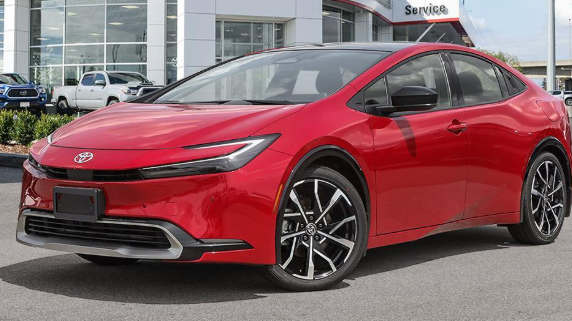

First-Time EV Buyers: What to Consider Before Your First Trade
First-Time EV Buyer
Entering the electric vehicle (EV) market can be both exciting and overwhelming. As Canada continues to embrace sustainable transportation, more first-time buyers are considering making the switch to electric. This guide will walk you through the critical considerations to ensure you make a smart, informed decision when trading your first EV.
Understanding the Canadian EV Landscape
Canada’s EV market is rapidly evolving, with government incentives and increasing charging infrastructure making electric vehicles more accessible than ever. Before diving in, it’s crucial to understand the unique landscape of EV ownership in our country.
Key Considerations for First-Time EV Buyers
1. Assess Your Driving Needs
Range Matters: Canada’s diverse geography and sometimes extreme weather conditions mean range is more than just a number. Consider your typical driving patterns:
- Daily commute distance
- Frequency of long-distance trips
- Access to charging infrastructure in your area and along common routes
Pro Tip: Don’t just look at the manufacturer’s stated range. Real-world range can vary significantly, especially in Canadian winters where cold temperatures can reduce battery performance by up to 30-40%.
2. Financial Considerations
Total Cost of Ownership While EVs often have a higher upfront cost, they can provide significant savings over time:
- Lower fuel costs (electricity vs. gasoline)
- Reduced maintenance expenses
- Government incentives and rebates
Canadian Incentives to Explore:
- Federal iZEV Program: Up to $5,000 for eligible electric vehicles
- Provincial rebates (varies by province):
- British Columbia: Up to $4,000
- Quebec: Up to $7,000
- Ontario: Currently no provincial rebate, but federal incentives apply
3. Charging Infrastructure
- Home Charging
- Level 1 (120V): Slowest option, uses standard household outlet
- Level 2 (240V): Faster charging, requires professional installation
- Estimated cost of home charger: $500-$2,000 (plus installation)
- Public Charging
- Growing network across Canadian cities
- Apps like PlugShare can help locate charging stations
- Consider charging networks in your regular travel areas
4. Battery Health and Longevity
What to Look For:
- Battery warranty (typically 8 years or 160,000 km)
- Previous battery maintenance records
- Charging history of the vehicle
- Battery capacity retention
Winter Performance: Canadian winters pose unique challenges for EVs:
- Expect reduced range in cold temperatures
- Invest in winter tires designed for EVs
- Learn battery pre-conditioning techniques
5. Model Selection
Top Considerations:
- Reliability ratings
- Resale value
- Performance in Canadian climate
- Maintenance costs
Popular First-Time EV Recommendations:
- Chevrolet Bolt
- Hyundai Kona Electric
- Tesla Model 3
- Volkswagen ID.4
6. Insurance and Maintenance
EV-Specific Considerations:
- Some insurers offer specialized EV insurance
- Maintenance costs are typically lower than gas vehicles
- Specialized EV technicians may be required for complex repairs
Red Flags to Watch Out For
- Vehicles with unclear battery history
- Lack of maintenance documentation
- Significantly low battery capacity
- Minimal remaining battery warranty
Financial Planning Checklist
- Calculate total ownership costs
- Research available incentives
- Get pre-approved for financing
- Budget for home charging installation
- Compare insurance rates for EVs
Final Thoughts
Buying your first EV is a significant decision that requires careful research and planning. Take your time, test drive multiple models, and don’t be afraid to ask questions. The Canadian EV market is dynamic and exciting, with new technologies and models emerging constantly.
Remember: Your first EV is a journey, not just a purchase. Embrace the learning curve, connect with other EV owners, and enjoy the ride towards a more sustainable future.
Additional Resources
- Natural Resources Canada EV Guide
- PlugShare Charging Station Finder
- Electric Vehicle Society of Canada
- Provincial government EV incentive websites
Disclaimer: Always consult with local experts, perform thorough vehicle inspections, and verify current incentives and regulations before making your final purchase.
Add a comment Cancel reply
Categories
- Car News (10)
- Car Reviews (7)
- Educational Tips (7)
- Electric Cars (9)
- EV Battery (1)
- EV Charging (8)
- EV Testing (3)
- Uncategorized (28)
Recent Posts
Related posts


How to buy Used Cars in Toronto: 10 Tips You Must Know

Top 10 Electric Cars to Watch in 2025









